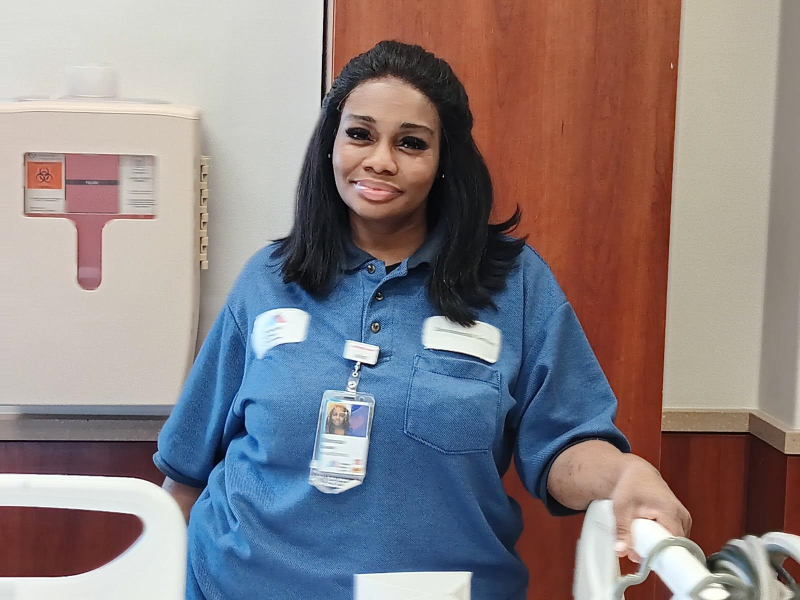A Kind Environmental Services Worker Inspires a Thank You in Verse

Monique Smalls, Environmental Services
Monique Smalls is a member of the Environmental Services team at Mount Sinai Queens. A patient wrote a letter of appreciation for Monique’s compassion and kindness and included a thank you poem.
Dear Monique:
We started to talk…You became very near and dear to me… I always looked forward to our daily talks. I finally got home from rehab. There were times that I got down in my thoughts and spirit. BUT then I would think of you and YOUR GIFT, and it lifted me back up again. By gift…I mean the gift of You…your thoughtfulness, kindness, and compassion. You are the sweetest and most considerate person I’ve met in a long time. You will NEVER know what you did for me. I pray for God‘s richest blessings upon you, your family, and your grandson.
T There’s a rare and special quality in the way some people live.
H However busy they may be, they still have time to give.
A Anything you ask or need, they’ll do their very best.
N No matter what the task is or how simple the request.
K Kindness just comes naturally to the rare and selfless few
S Special giving people—people just like YOU
Monique was surprised to receive this patient’s note. “I will always remember her; she was all alone, no family. It really saddened me. I had no idea I made such an impact; you never know what you can do for a stranger.”
Despite not being responsible for direct patient care, Monique is dedicated to every patient she meets. “What makes my job rewarding are the patients with whom I interact with every day. The first thing I do when I come into a patient’s room is smile and ask them how they are feeling and try and make them as comfortable as possible. They are patients here, so they become family, and I treat them as such.” She adds, “I know that words are very powerful. I choose to use my words to make patients smile, to reduce their anxiety, and most important, feel wanted. My mission is to help them see the positive in a negative situation.”





